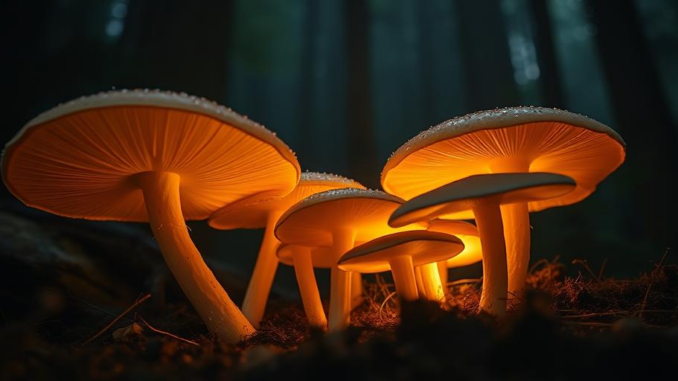
Summary
Law enforcement seizures of psilocybin mushrooms in the US increased dramatically between 2017 and 2022, potentially indicating increased availability. While psilocybin is being studied for its therapeutic potential, it’s crucial to be aware of its risks and the need for controlled settings. Addiction recovery programs offer a range of resources, including support groups, outpatient programs, and sober living homes, to aid individuals on their path to sobriety.
** Main Story**
So, have you seen the latest data on magic mushroom seizures in the US? It’s pretty eye-opening. A new study just dropped, and it shows a massive spike in law enforcement seizures of psilocybin mushrooms. Seriously, between 2017 and 2022, the number of seizures went from 402 to almost 1,400! And the amount of stuff they confiscated? It nearly quadrupled! You have to ask, what’s driving this increase in availability?
It seems the Midwest and West are hot spots for these seizures. The West Coast, in particular, accounts for the largest chunk of the total weight seized. Now, seizures don’t tell the whole story about how many people are actually using these mushrooms. But they do give us a good indication of how easily available they are on the illicit market. It’s a red flag, no doubt about it.
Understanding Psilocybin: The Good and the Bad
Let’s be clear about what we’re talking about here. Psilocybin, the active ingredient in “magic mushrooms,” is a psychedelic substance that messes with your mood, thoughts, and perceptions – temporarily, of course. While some research suggests it’s not physically addictive, you can still experience psychological withdrawal symptoms and build up a tolerance if you use it regularly. I even heard of a guy, who was self medicating with psilocybin to self-treat. He ended up in a worse place and needing more help.
And that’s not all. Misuse can lead to some pretty nasty side effects, like anxiety, paranoia, and, in some cases, even short-term psychosis. Not fun, right? That’s why responsible use, within controlled settings and under professional guidance, is so important. If you are going to use it, do it correctly.
The Therapeutic Promise: A Glimmer of Hope
That being said, there’s also a lot of buzz around the potential therapeutic benefits of psilocybin. Studies have shown promise in treating mental health issues like addiction, depression, and PTSD. Clinical trials are ongoing to explore these possibilities further, which is great. We should be looking into all the avenues of support and treatment available, however..
But, and this is a big but, it’s essential to draw a line between recreational use and therapeutic use under medical supervision. Self-treating with psilocybin is risky business and could make existing mental health problems even worse. I mean, it can you really trust what you are taking.
Navigating Recovery: Paths to Sobriety
So, what happens if someone is struggling with addiction? Well, there are plenty of recovery programs out there that offer comprehensive support and resources. These programs take a holistic approach, addressing the physical, psychological, emotional, and social aspects of addiction. It’s not a one size fits all approach.
And don’t forget about support groups like Alcoholics Anonymous (AA), Narcotics Anonymous (NA), or SMART Recovery. They provide a safe space for people to share their experiences and connect with others facing similar challenges. Talk about a sense of community, right? A feeling of family, even.
Then there are outpatient treatment programs. These are designed for individuals who can attend regular therapy sessions while still keeping up with their daily routines. The intensity can vary, from low to high, depending on individual needs. Services usually include counseling, behavioral therapies, and sometimes even medication management.
Finally, you have sober living homes. They offer a structured and supportive environment for people transitioning out of inpatient treatment or simply looking for a substance-free place to live. They foster a sense of community and accountability, which can be crucial for maintaining sobriety and developing essential life skills.
Staying Informed and Seeking Help
The bottom line is that this surge in magic mushroom seizures is a wake-up call. We need to raise awareness about the potential dangers of recreational use. On the other hand, we need to balance that with the potential that responsible and researched use of psilocybin may have in various therapeutic treatments.
And for anyone out there struggling with addiction, remember that there are tons of resources available to provide support and guidance. If you’re in need of assistance, you can always reach out to the Substance Abuse and Mental Health Services Administration (SAMHSA) National Helpline for confidential support and information on treatment options. After all, recovery is possible, and you don’t have to go it alone.


Be the first to comment